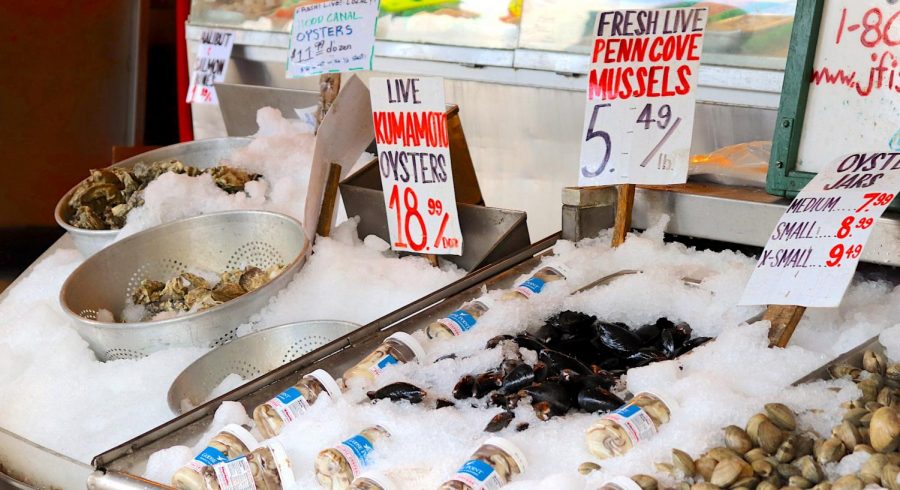Seaspiracy Reels in Students With its Shocking Story
Netflix released its latest environmentally-focused documentaries, “Seaspiracy” just before the beginning of Earth Month in April. Director Ali Tabrizi traveled around the world documenting the various inner workings of the fishing industry. He also interviewed companies behind sustainable fishing and ocean experts to bring to light the issues associated with fishing in various countries.
While Tabrizi’s initial angle of the documentary was to discuss whaling, he discovered that many dolphins and whales were killed by fishers, as they were considered by fisheries as business competition. This discovery started when he traveled to the Japanese town of Taiji, known for traditional Japanese whaling techniques. Tabrizi soon discovered that there was more behind the scenes of whaling that he wanted to investigate.
His discovery led him to interview representatives of sustainable fish companies like Mark Palmer of Dolphin Safe Tuna label. The company Palmer represented was allegedly protecting dolphins and ensuring that any tuna in a package with their label was caught sustainably without harming any dolphins.
However, in the interview that did not seem to be the case when he talked about the lack of enforcement surrounding dolphins not being caught as well as the factor of bycatch. Bycatch represents the species caught by fishing companies that were not their intended target.
Seattle University students were shocked by the film’s discussion of negative repercussions of marine life. Second-year computer science student, Arden Yazici, found herself emotional watching “Seaspiracy” because of the concerns it raised about fishing.
“I suddenly felt like I needed to commit to stop eating fish,” Yazici said. “So much of the world depends on fishing, but ocean animals are being killed with zero regard for the bycatch. It’s crazy that there are dolphins, turtles and even birds that are being killed in order to catch a specific species of ocean animal.”
Although Tabrizi highlighted issues regarding the fishing industry, “Seaspiracy” has received some backlash about misleading information. Palmer claims Tabrizi took his interview out of context to support what Tabrizi was saying in the film. Palmer believes “Seaspiracy” does not accurately represent the company he works for.
When trying to find solutions to the fishing issues Tabrizi uncovered, he mentioned fish farms. He ultimately found issues with this method of fishing, as it increases disease among marine life. After going in circles contemplating ways to increase sustainable fishing, Tabrizi claims that sustainable fishing simply does not exist. However, this claim has since been refuted as experts believe there are ways to sustainably fish, there just may be some problems with the industry.
Jay Grant, second-year business analytics major, also found the film shocking to watch. He was surprised by everything Tabrizi talked about and immediately wanted to change his own actions.
“Seeing the impact that we have on marine ecosystems prompted me to want to learn how I can lower my impact,” Grant said. “I have stopped eating fish and am trying to lessen the single use plastics that I use. I think we all hold responsibility for the effects we have on the ocean’s ecosystem, and it is important that we know the environmental impacts of the foods we eat and the products we consume.”
Third-year ultrasound diagnostic major, Jami Tresselt, found herself learning more about the fishing industry than she expected.
“Watching the movie definitely opened my eyes to the fishing industry,” Tresselt said. “I didn’t know the impact that fishing had on the environment and that things such as whaling still existed to such an extent. The movie as a whole was shocking and had me on the edge of my seat the entire time.”
Despite the controversy associated with the film’s accuracy since its release, Seattle U students found the movie to be inspirational and moving in ways they did not expect. Within the motivating aspects of the film, students have found ways to alter their habits to benefit marine life.







![Civil War is A24’s Political Blockbuster that Exceeds Expectations [REVIEW]](https://seattlespectator.com/wp-content/uploads/2024/04/CivilWarReviewWeb-1-600x396.jpg)


